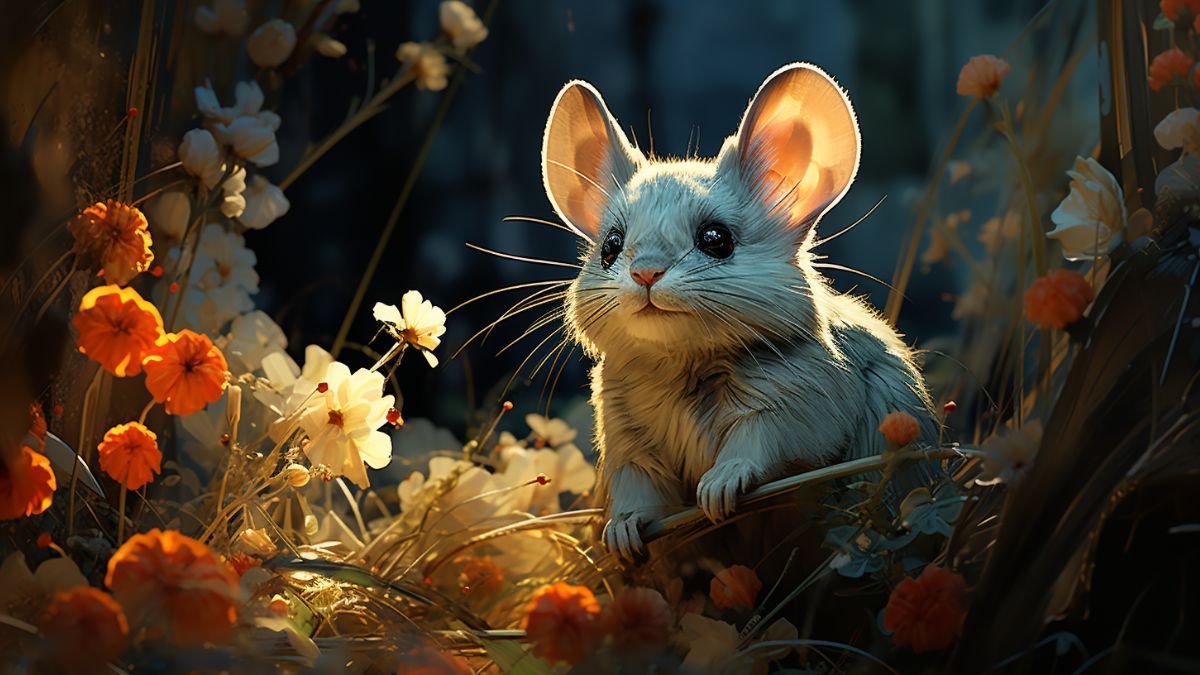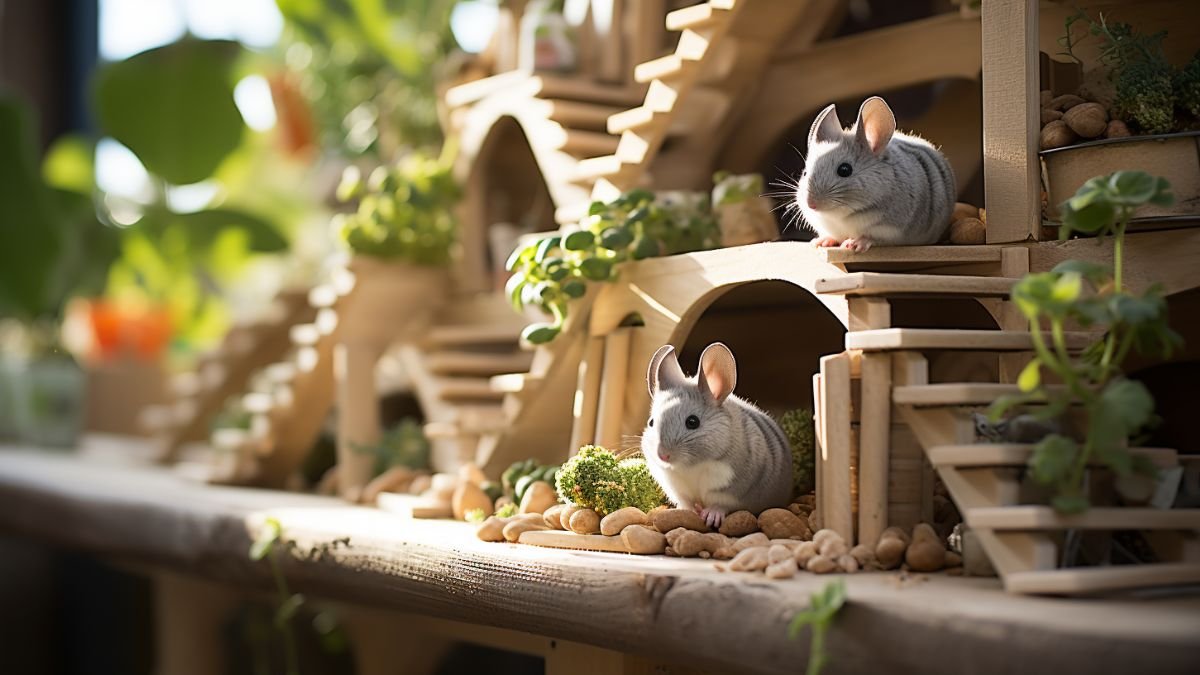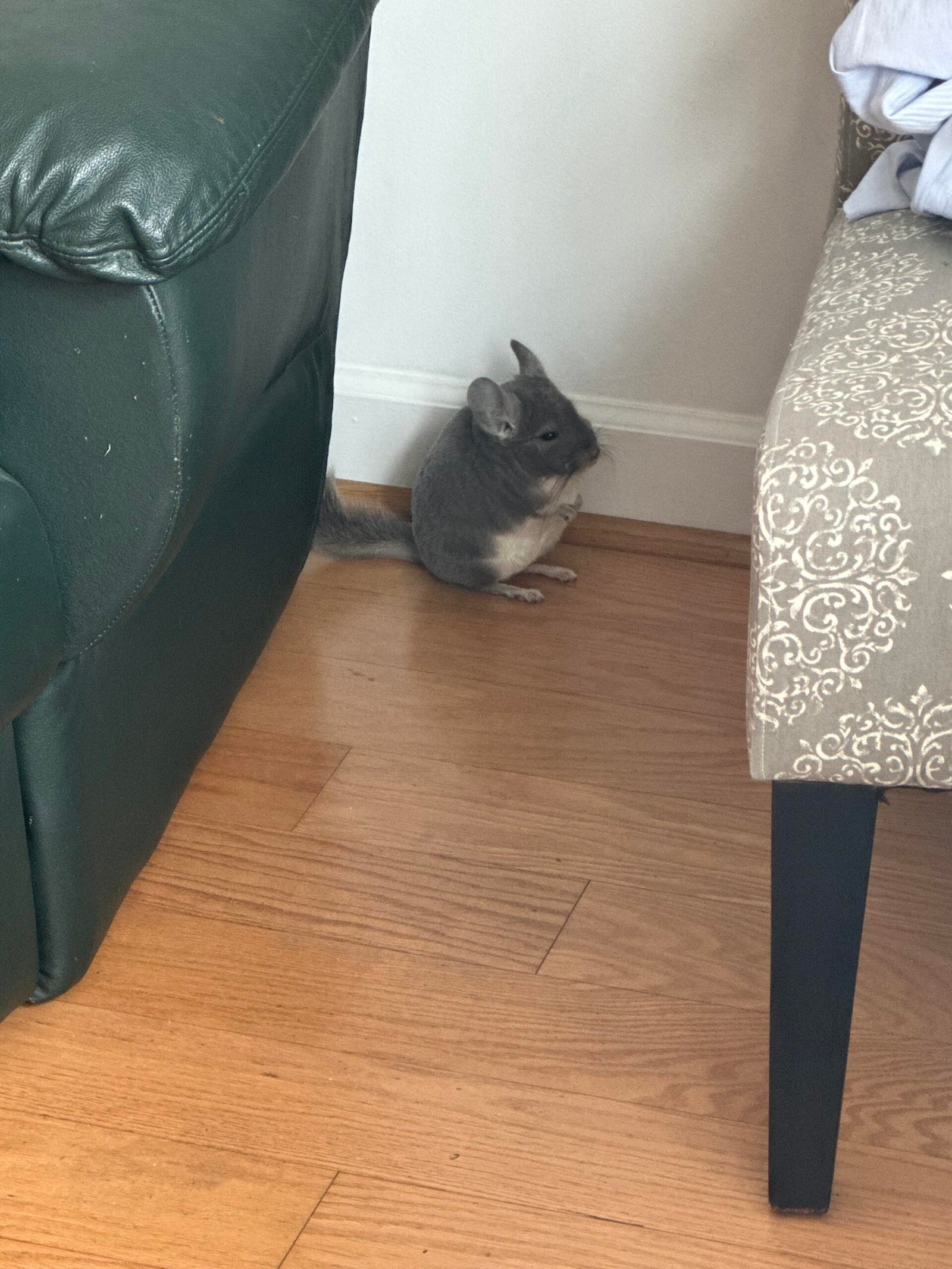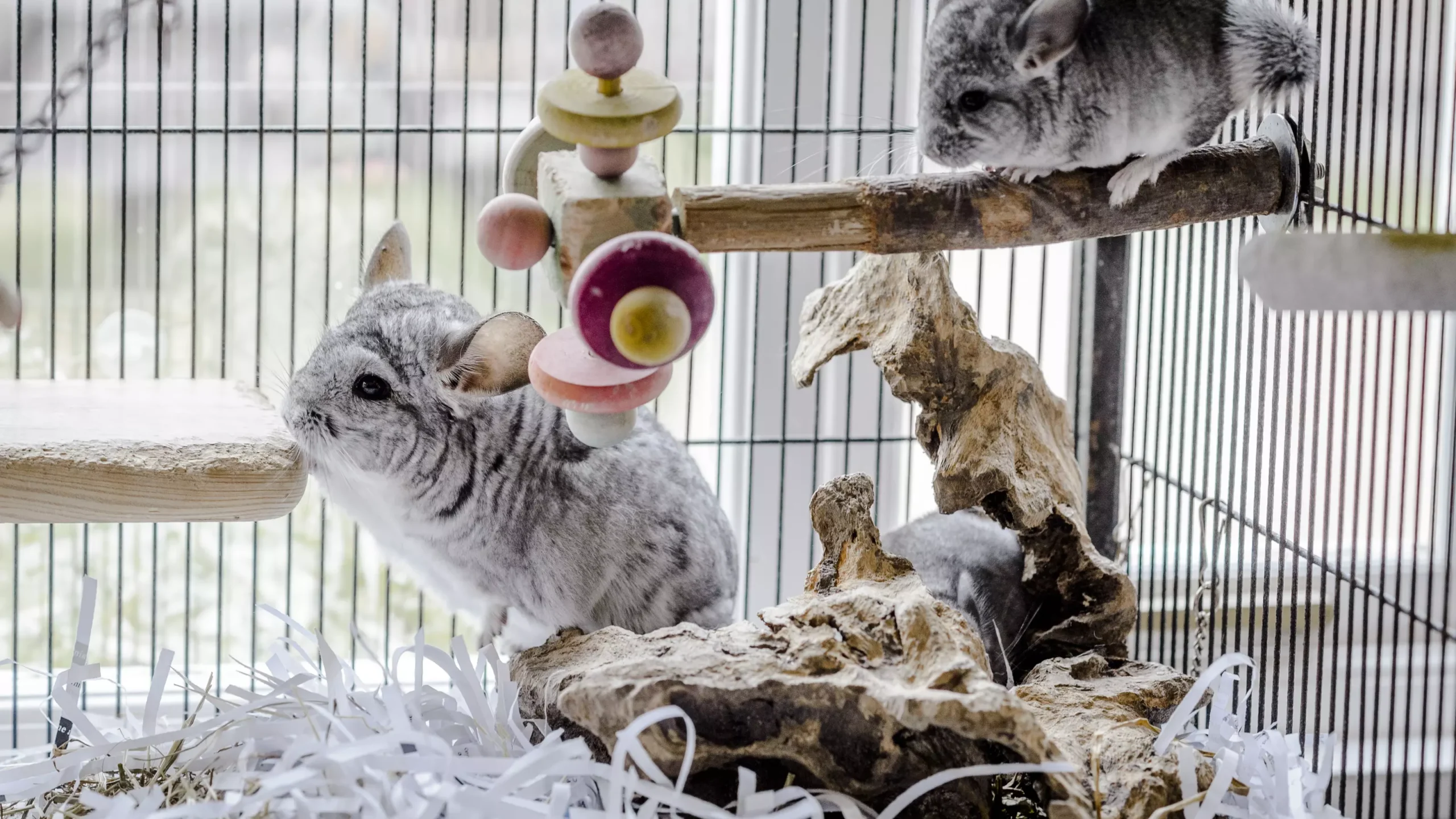
If you have a chinchilla that gets nervous easily, you know how tricky it can be to handle them without causing stress. You want to keep your furry friend safe and calm, but sometimes it feels like one wrong move could upset them.
What if you could learn simple, effective ways to make your chinchilla feel secure every time you pick them up? You’ll discover easy tips to handle your nervous chinchilla gently and confidently—so both of you can enjoy those special bonding moments without worry.
Keep reading to find out how to create a calm, trusting environment for your chinchilla today.

Credit: shop.smallpetselect.com
Recognize Nervous Behavior
Recognizing nervous behavior in your chinchilla helps you handle it safely. Chinchillas show stress in many ways. Knowing these signs keeps your pet calm and happy.
Common Signs Of Anxiety
Nervous chinchillas may freeze or hide suddenly. They often make quick, sharp noises. Restlessness and constant shaking show stress too. Watch for loss of appetite and biting cage bars. These signs warn you to be gentle and patient.
Body Language Cues
Body language tells a lot about chinchilla feelings. A stiff body means fear or discomfort. Wide eyes show alertness and worry. Tail flicking or rapid ear movements indicate nervousness. Soft, slow movements mean your pet feels safe.
Create A Calm Environment
Creating a calm environment is key to helping a nervous chinchilla feel safe. Stress can make them hide or act scared. Small changes around their space can make a big difference. Calm surroundings help chinchillas trust you more over time.
Keep noise and activity low. A peaceful place helps chinchillas relax and lowers their stress. Watching your chinchilla calm down is rewarding and helps build a strong bond.
Quiet Spaces
Choose a quiet room or corner for your chinchilla’s cage. Loud sounds can scare them easily. Avoid spots near TVs, loud appliances, or heavy foot traffic. Soft, gentle sounds are better for their sensitive ears.
Use curtains or blankets to block outside noise if needed. Create a cozy hiding spot inside the cage. A small box or tunnel gives them a safe place to retreat. Quiet spaces help nervous chinchillas feel secure and calm.
Temperature Control
Chinchillas need cool temperatures between 60-70°F (15-21°C). Heat can stress them out or cause illness. Avoid placing the cage near heaters or direct sunlight.
Use a fan or air conditioner in hot weather. Check the cage temperature regularly. Cooler air helps chinchillas stay comfortable and relaxed. Proper temperature control lowers anxiety and keeps them healthy.
Approach Slowly And Gently
Approaching a nervous chinchilla slowly and gently helps build trust. Quick actions can scare them. Calm movements make them feel safer. Taking time shows respect for their space.
Patience is key. Give your chinchilla moments to adjust. Quiet, careful steps help prevent stress. This gentle approach makes handling easier and more enjoyable.
Avoid Sudden Movements
Sudden moves startle chinchillas. They may jump or run away. Move your hands and body slowly. Keep your gestures smooth and calm. This helps your chinchilla stay relaxed.
Use Soft Voices
Speak in a low, gentle tone. Loud noises can frighten chinchillas. Use soft words or whispers. Your calm voice shows you mean no harm. This helps them trust you more.
Use Proper Handling Techniques
Handling a nervous chinchilla requires care and gentle techniques. Proper handling helps the chinchilla feel safe and reduces stress. Using the right methods builds trust and makes the experience better for both you and your pet.
Support The Body
Always support your chinchilla’s whole body. Place one hand under its chest and the other under its back legs. This prevents injury and makes the chinchilla feel secure. Avoid holding it by the tail or limbs. These areas are sensitive and can cause pain.
Safe Holding Positions
Hold the chinchilla close to your body to keep it calm. Cradle it gently against your chest or hold it in your lap. Avoid squeezing or gripping too tightly. Keep movements slow and smooth to avoid startling your pet. A calm hold helps reduce nervousness and creates a safe space for the chinchilla.
Build Trust Gradually
Building trust with a nervous chinchilla takes time and patience. It cannot be rushed. The chinchilla needs to feel safe and calm around you before it relaxes. Small steps help create a bond. This process makes handling easier and more pleasant for both of you.
Regular Interaction
Spend time near your chinchilla every day. Sit quietly and let it see you without moving too fast. Talk softly to help it get used to your voice. Short visits are best at first. Gradually increase the time as your chinchilla feels more comfortable. Consistency helps build trust over days and weeks.
Positive Reinforcement
Use treats to reward calm behavior. Offer a small snack when your chinchilla stays still or comes closer. Avoid sudden movements or loud noises that may scare it. Praise gently with a soft voice. This teaches your chinchilla that being near you brings good things. Positive moments help reduce fear and build a strong bond.

Credit: smallpetselect.com
Provide Enrichment And Comfort
Providing enrichment and comfort is key to helping a nervous chinchilla feel safe. These small animals need mental and physical stimulation to stay calm. A relaxed chinchilla is easier to handle and bond with.
Comfort also means creating a cozy environment. Soft bedding and quiet spaces reduce stress. Enrichment keeps their minds busy and prevents boredom, which lowers anxiety.
Toys And Chews
Toys help chinchillas stay active and happy. Wooden blocks, chew sticks, and tunnels work well. Chewing is natural for them and keeps teeth healthy. Safe toys stop nervous energy from building up. Rotate toys to keep things interesting.
Hiding Spots
Chinchillas feel safer with places to hide. Small houses or tunnels give them privacy. These spots reduce fear and allow rest. A hiding place helps build trust over time. Make sure hiding spots are quiet and dark.
Monitor Health And Stress
Monitoring your chinchilla’s health and stress is key to keeping it calm and happy. Nervous chinchillas may hide signs of illness or stress. Watching closely helps catch problems early. This care protects their well-being and builds trust between you and your pet.
Signs Of Illness
Check your chinchilla daily for any signs of sickness. Look for changes in appetite or weight. Runny nose, sneezing, or coughing are warning signs. Dull fur or bald spots show poor health. Notice if your chinchilla moves less or seems weak. Early detection helps prevent serious illness.
Behavioral Changes
Stress often changes a chinchilla’s behavior. Watch for unusual hiding or aggression. Excessive chewing or biting might mean anxiety. Less grooming can signal discomfort. Sudden loud noises or new surroundings increase stress. Recognizing these changes lets you adjust care quickly.
Avoid Common Mistakes
Handling a nervous chinchilla needs care and patience. Mistakes can make your pet more scared. Avoiding common errors helps build trust and keeps your chinchilla calm. Learn what to watch out for to keep your pet safe and happy.
Overhandling
Too much handling stresses a nervous chinchilla. They need time to feel safe. Hold your chinchilla only for short periods. Watch their behavior during handling. If they seem tense or try to escape, stop immediately. Gentle and slow movements help them relax. Let your chinchilla come to you in its own time.
Ignoring Warning Signs
Chinchillas show clear signs when they feel scared. Look for stiff body, rapid breathing, or biting attempts. These signs mean your chinchilla needs space. Do not force contact or handling. Respecting these warnings prevents injury and fear. Pay close attention and adjust how you interact with your pet. This respect builds a strong bond over time.
Seek Professional Advice
Seeking professional advice is important when handling a nervous chinchilla. Experts can guide you to keep your pet calm and safe. They understand chinchilla behavior and health better. Their advice helps prevent stress and injury to your pet.
Veterinarian Consultation
A vet can check your chinchilla’s health. Sometimes nervousness comes from pain or illness. The vet can find and treat these problems. They also offer tips on safe handling. Regular vet visits keep your chinchilla healthy and happy.
Behavioral Experts
Behavioral experts study how chinchillas act. They can teach you ways to calm your pet. Experts suggest techniques to build trust with your chinchilla. They help you understand signs of stress. Their guidance improves your pet’s comfort and confidence.
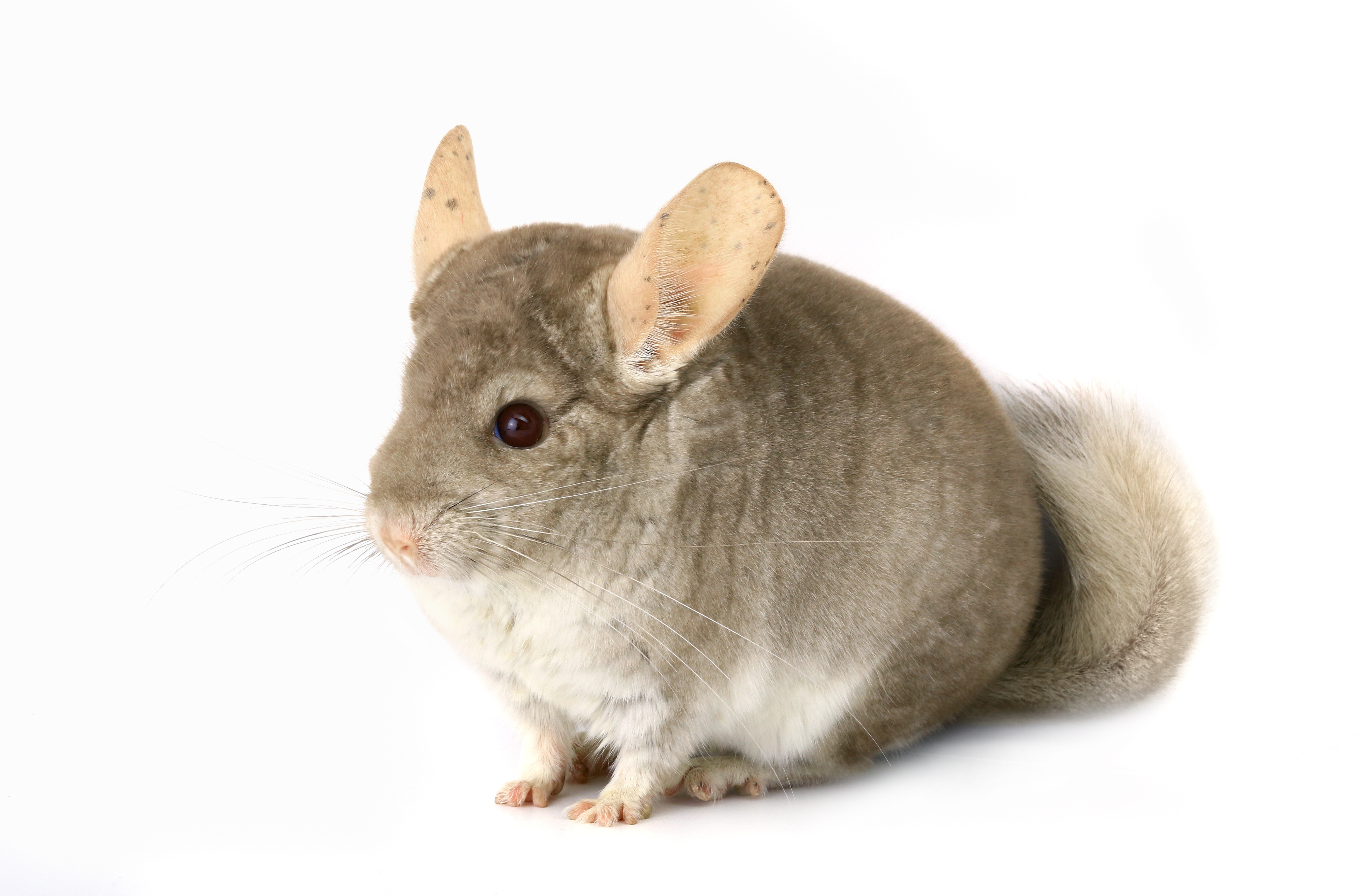
Credit: www.pendervet.com
Frequently Asked Questions
How Can I Tell If My Chinchilla Is Nervous?
Signs include rapid breathing, freezing, wide eyes, and trembling.
What Is The Best Way To Approach A Nervous Chinchilla?
Move slowly, speak softly, and avoid sudden movements.
How Long Should I Wait Before Handling A Nervous Chinchilla?
Wait several days for them to feel calm and safe.
Can Loud Noises Make Chinchillas More Nervous?
Yes, loud sounds can stress chinchillas and increase nervousness.
Should I Use Treats To Calm A Nervous Chinchilla?
Yes, gentle treats help build trust and reduce anxiety.
How Do I Hold A Nervous Chinchilla Safely?
Support their body fully and hold them close to prevent falls.
Is It Normal For Chinchillas To Be Nervous Around New People?
Yes, chinchillas are shy and need time to adjust to strangers.
What Environment Helps Reduce Chinchilla Nervousness?
A quiet, calm, and safe space with familiar smells works best.
Conclusion
Handling a nervous chinchilla takes patience and care. Speak softly and move slowly around them. Let the chinchilla come to you on its own terms. Offer treats to build trust over time. Remember, sudden actions can cause stress or fear.
A calm environment helps your pet feel safe. Regular gentle handling improves their comfort and bond. Always respect your chinchilla’s feelings and space. With kindness and time, your pet will relax. Enjoy the special moments you share together.





